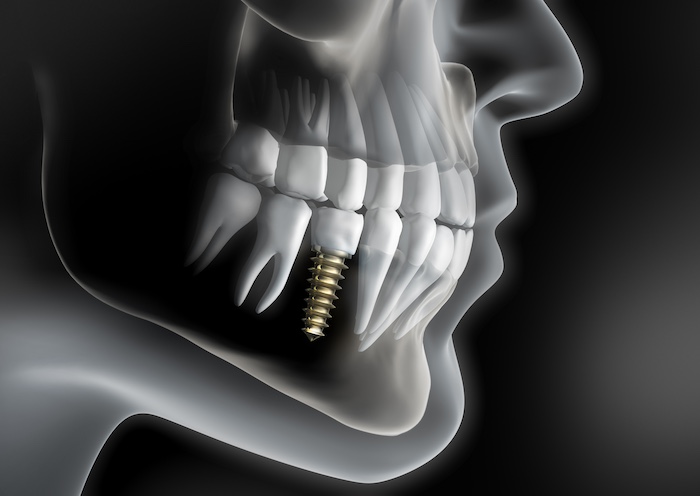Dental Implant Trend Gives Reasons to Smile
For decades, people who suffered from missing teeth, sore gums from dentures, and limited chewing ability had few reliable options. Today, more patients are turning to dental implants, a long-lasting solution that not only restores function but also greatly improves comfort and appearance.
Why Are Dental Implants So Popular?
Dental implants offer a natural-looking, permanent solution to tooth loss. Unlike dentures, which rest on the gum tissue, implants are supported by the jawbone. This makes a significant difference in comfort and performance. Most patients regain over 90% of their original chewing ability, making implants the closest alternative to natural teeth.
The Problem With Dentures
Traditional dentures rely entirely on gum tissue for support. Over time, this pressure leads to irritation and gradual bone loss beneath the surface. Even well-fitted dentures can shift, make chewing difficult, and cause sore spots. For some, dentures can even affect speech and confidence.
How Implants Work Differently
Dental implants consist of a titanium post surgically placed into the jawbone. As the bone heals, it fuses with the implant in a process called osseointegration. This creates a secure foundation that can support crowns, bridges, or dentures, offering both stability and strength.
“One of the most intriguing reasons to choose implants is that they convince the body into thinking a tooth is still present,” explains Dr. Stephen Forrest of Des Moines Cosmetic Dentistry Center. “This helps prevent the significant bone loss that often accompanies tooth loss and denture use.”
Dr. Forrest has been a leader in implant dentistry, providing personalized treatment plans for patients with one missing tooth, several missing teeth, or unstable dentures. Every case is carefully evaluated to determine the best implant system for the individual.
What to Expect With Dental Implants
Step 1: Initial Consultation
Your implant journey starts with a detailed exam and a discussion about your health history and goals. Patients need healthy bone structure and good oral hygiene to proceed with treatment.
Step 2: Surgical Placement
The implant is placed into the jawbone under local anesthesia or sedation. This in-office procedure usually takes about an hour per implant.
Step 3: Healing and Integration
The implant needs time to bond with the bone—typically 3 to 6 months. During this phase, temporary teeth or existing dentures can be worn.
Step 4: Final Restoration
Once the implant is secure, a crown, bridge, or denture is attached. These final restorations are crafted to match your natural teeth in color, shape, and feel.
Benefits of Dental Implants
- Look and feel like natural teeth
- Preserve jawbone and prevent bone loss
- Improve chewing ability and speech
- Stay securely in place—no slipping or clicking
- Can last a lifetime with proper care
“Many of my patients have had implants for over 20 years, and they’re still going strong,” says Dr. Forrest. “It’s one of the best long-term dental investments you can make.”
Are There Any Risks?
Like any surgical procedure, dental implants do come with risks. These may include:
- Infection at the implant site
- Nerve damage
- Implant failure in patients with certain conditions or habits (e.g., smoking)
Dr. Forrest uses advanced planning and techniques to reduce risks and improve success rates. Most patients heal comfortably with minimal downtime.
What About the Cost?
The cost of dental implants varies based on the number of teeth replaced, the type of restoration, and any additional procedures needed. While some dental insurance plans may help with part of the treatment, others do not.
Financing and payment plans are available, and our office team will review your options at the time of consultation.
Caring for Dental Implants
To get the most out of your implants:
- Brush and floss daily
- Avoid smoking
- Visit your dentist regularly
- Use special tools for cleaning around implant-supported dentures
Even though implants can’t get cavities, the gums around them still need care to avoid infection.
Who Is a Good Candidate?
You may be a candidate for implants if you:
- Have one or more missing teeth
- Are in good general and oral health
- Have enough bone to support an implant
- Do not smoke or are willing to quit
- Are free from uncontrolled chronic health issues
Even if you were told before that you weren’t a candidate, newer techniques now make it possible to place implants in more complex situations.
Restore Your Smile and Confidence
Dental implants are one of the most advanced and reliable options for replacing missing teeth. Whether you’re tired of dentures or ready to restore your bite and smile, implants could be the solution you’ve been looking for.
Call Des Moines Cosmetic Dentistry Center today to schedule your consultation. We’ll help you decide if implants are right for you, so you can smile, eat, and live with confidence again.

